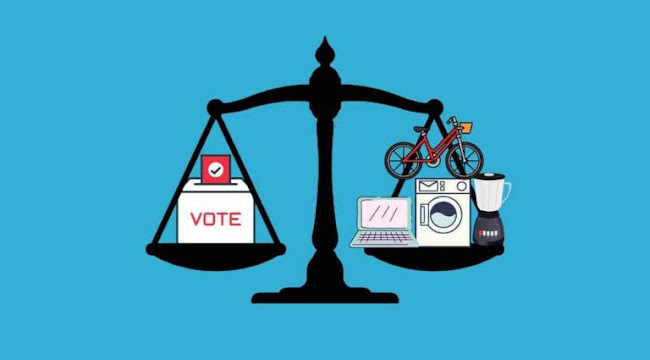There are many reasons to be wary of increasing the automation of nuclear command and control, especially when it comes to computer-assisted decision-making. Many of these technologies are still in their infancy and prone to malfunctions that cannot easily be anticipated. According to a report from the Stockholm International Peace Research Institute (SIPRI), recent advances in AI contribute to nuclear risk.
Dharmo Rakshati Rakshitah | धर्मो रक्षति रक्षितः | Dharma protects the protector. +INDIA ACCELERATING+ (aka अग्रसर भारत) is a public interest blog on India's strategic governance, economy, and security. The blog is diagnostic and prescriptive and suggests remedial measures with predictive insights.

The James Webb Space Telescope (JWST) is a space telescope specifically designed to conduct infrared astronomy. Its high-resolution and high-sensitivity instruments allow it to view objects too old, distant, or faint for the Hubble Space Telescope. This enables investigations across many fields of astronomy and cosmology, such as observation of the first stars and the formation of the first galaxies, and detailed atmospheric characterization of potentially habitable exoplanets. The U.S. National Aeronautics and Space Administration (NASA) led Webb's design and development and partnered with two main agencies: the European Space Agency (ESA) and the Canadian Space Agency (CSA). The NASA Goddard Space Flight Center (GSFC) in Maryland managed telescope development, while the Space Telescope Science Institute in Baltimore on the Homewood Campus of Johns Hopkins University operates Webb. The primary contractor for the project was Northrop Grumman. The telescope is named after James E. Webb, who was the administrator of NASA from 1961 to 1968 during the Mercury, Gemini, and Apollo programs.
Friday, September 01, 2023
Saturday, August 26, 2023
India Just Sounded the Death Knell for its Security! Will China Attack India Very Soon?
Leadership in many countries around the globe suffers from selective memory loss and have changing purposes, goals, and opinions. We refuse to learn the lessons from history and embrace our enemy based on his sycophantic behavior which includes public flattery, appreciation, money pumping, false promises, and the like. The Indian leadership just sounded the death knell for India's security and has paved the way for Chinese aggression into Indian soil very soon.
Thursday, August 24, 2023
How India can Become an Agricultural Powerhouse: $600 B Output by 2030
India can become an agricultural powerhouse by unlocking growth and productivity for the sector. The key to expanding India’s transformation into a farming powerhouse is agricultural technology, or agtech. By 2030, agriculture could contribute around $600 billion to India’s GDP—an increase of 50 percent over its contribution in 2020.
Why State Governments Should Implement the Best Provisions of the New Education Policy 2020
India has made significant strides in improving access to education across the country. Between 2004-05 and 2018-19, the number of children going to school increased from 219 million to 248 million. However, the learning outcomes of students across all age groups continue to remain below par.
After Andaman & Nicobar, India should Develop a Second Tri-Services Command at Lakshadweep
The Andaman and Nicobar Islands are a group of 572 islands located in the Bay of Bengal and the Andaman Sea. They are strategically important for India as they lie close to the Malacca Strait, a vital sea lane of communication that connects the Indian Ocean and the Pacific Ocean. The islands also provide India with a natural base to monitor and counter the growing presence and influence of China in the Indo-Pacific region.
Monday, August 21, 2023
Why QUAD and I2U2 are Better for India’s Security than BRICS and SCO
India is a rising power in the world, with a population of over 1.3 billion people, a fast-growing economy, and a diverse and vibrant culture. India also faces many security challenges, such as border disputes with China and Pakistan, terrorism, cyberattacks, maritime piracy, and climate change. To deal with these challenges, India has adopted a multi-alignment strategy, which means engaging with different countries and groups based on its interests and values.
How to Make Freebies in Electoral Politics Work in India's Interest
India is a country with a large and diverse population, where elections are often contested fiercely by various political parties. One of the strategies that some parties use to attract voters is to offer freebies, which are goods or services that are given free of charge or at a subsidized rate. Freebies can range from basic necessities like food, water, electricity, and health care to luxury items like laptops, smartphones, bicycles, and gold.
Sunday, August 20, 2023
Is the Electoral Process in India Fair since 1991?
Elections in India are held at three levels: national, state, and local. The national elections are for the Lok Sabha, the lower house of the Parliament, which has 543 seats. The state elections are for the legislative assemblies of the 28 states and 3 union territories. The local elections are for the urban and rural bodies, such as municipal corporations, municipalities, panchayats, and zilla parishads.
How Opposition Alliances Play a Major Role in Protecting Democracy in India
India is often hailed as the world’s largest democracy, with a population of over 1.3 billion people and a diverse range of religions, languages, cultures, and political parties. However, democracy in India is not without its challenges, as the ruling Bharatiya Janata Party (BJP) led by Prime Minister Narendra Modi has been accused of undermining democratic institutions, violating human rights, and promoting a Hindu nationalist agenda that marginalizes minorities and dissenters.
Saturday, August 19, 2023
What is the Dharma and Duty of the Prime Minister of India?
The prime minister of India is the head of government and the leader of the nation. He or she is responsible for the welfare of the people, the security of the country, and the development of the economy. The prime minister also represents India on the global stage and shapes its foreign policy. But what are the moral and ethical principles that guide the prime minister in his or her actions?
10 Ways in Which India can Maintain Social Harmony within the Country
Social harmony is the peaceful co-existence of people in society in the pursuit of collective well-being. It is the essential lubrication that facilitates a society in motion. India, being a large and complex multi-religious, multi-ethnic, and multi-cultural nation, faces many challenges in maintaining social harmony among its diverse groups.
Monday, August 14, 2023
Joe/Hunter Biden in the Dock! Trump Indictment a Weaponisation of the US Political System
REPRODUCED IN THE INTEREST OF THE INDIAN PUBLIC
Dear Fellow Conservative,
Are you disgusted by Hunter and Joe Biden’s blatant corruption?
As Director of The Heritage Foundation’s Oversight Project, my team and I work every day to expose the deep state’s two-tiered system of justice that enables the Biden crime family.
Thursday, August 10, 2023
How Democracies Die: An Insightful, Analytical, and Thought-Provoking Introduction!
Introduction reproduced from the book ‘How Democracies Die’ by Harvard professors Steven Levitsky and Daniel Ziblatt. The key message the authors convey is that “Democracies work best—and survive longer—where constitutions are reinforced by unwritten democratic norms. And if one thing is clear from studying breakdowns throughout history, it’s that extreme polarization can kill democracies.”
Tuesday, August 08, 2023
+INDIA ACCELERATING+ | Dharmo Rakshati Rakshitah
Inter-Religious Riots in India: Genesis and Ways to Contain it
Communal clashes in India have been a recurring issue for many years, most recently in Mewat/Nuh. These clashes often arise due to tensions between different religious or ethnic groups, and can result in violence and loss of life. In this article, we will explore why communal clashes erupt in India, provide examples of recent communal clashes, and discuss ways in which these clashes can be controlled.
Sunday, July 23, 2023
Hindus, Wake Up, You are a Minority Community in 6 States and 3 UTs in India!
- There are six states and three Union Territories with Hindus as a minority.
- Actual minorities are deprived of government schemes designated for them.
- There are only 1% Hindu in Ladakh, 2.75% in Mizoram, and 2.77% in Lakshadweep.
Even Now, with its Current Assets, this is How India Can be Recognized as a Semi-Developed Nation!
A developed nation is one where the public infrastructure is fairly good, national governance is based on transparency, accountability, and efficient delivery of public services, where important institutions enjoy a fair degree of autonomy, where the human development indices have a good rating, where there is honesty in public and private dealings, thus leaving little room for corruption.
Saturday, July 22, 2023
10 Reasons Why India Should Have a Central Ministry for Internal and External Intelligence Gathering
Wednesday, July 19, 2023
Why Should India Invest in Basic and Applied Sciences' Research for the Advancement of Indian Society
Excerpts from the Paper by Carsten P. Welsch, Physics Department, University of Liverpool and Cockcroft Institute, Liverpool, UK
Curiosity-driven fundamental research has driven revolutionary transformations of society, such as the rapid growth of computer-based intelligence and the discovery of the genetic basis of life. Albert Einstein’s famous theory of relativity is now used every day as part of the Global Positioning System (GPS) and built into mobile phones and car navigation systems.
Friday, April 14, 2023
India Could Capture 8% of the $7 Trillion AI-Generative Global Market by 2030
REPUBLISHED IN PUBLIC INTEREST: CREDIT---GOLDMAN SACHS RESEARCH
Breakthroughs in generative artificial intelligence have the potential to bring about sweeping changes to the global economy, according to Goldman Sachs Research. As tools using advances in natural language processing work their way into businesses and society, they could drive a 7% (or almost $7 trillion) increase in global GDP and lift productivity growth by 1.5 percentage points over a 10-year period.
Sunday, April 09, 2023
FEATURED POST
A ROADMAP FOR INDIA: 2020 AD – 2050 AD
WHAT DO WE WANT INDIA TO BE IN 2050 AD •ONE OF THE MAJOR GLOBAL POWERS •$20 TRILLION ECONOMY BY GDP, PER CAPITA GDP AT $15,400 •MIXED ...

ALL TIME FAVOURITE POSTS
-
China has been a thorn in India’s neck since the last 65 years. Not without reason. The leadership in India cannot distinguish a foe from a ...
-
Why do kings, presidents, prime ministers and politicians wage war? Is it for conquest, self aggrandizement, territorial expansion or econom...
-
Objective: To promote writing on mainly Indian and also international governance based on objectivity, reason, the power of ideas and the ...
-
As India embarks on its growth trajectory, there are bound to be many pitfalls and obstacles on the way.
-
India as a nation has a convoluted thinking: India has 30-odd states, 1,500 languages and dialects, dozens of ethnic groups, several religio...
-
The Andaman and Nicobar Islands are a group of 572 islands located in the Bay of Bengal and the Andaman Sea. They are strategically importan...
-
On Reservations, Insurgencies, Income Disparities, Political Communication, Democracy & CohesivenessReservations/Conscription: Undoubtedly, the socially and economically deprived must get opportunities. But is 50 per cent reservation in ...
-
WHAT DO WE WANT INDIA TO BE IN 2050 AD •ONE OF THE MAJOR GLOBAL POWERS •$20 TRILLION ECONOMY BY GDP, PER CAPITA GDP AT $15,400 •MIXED ...
-
Look at the three political maps. If India buys the Rangpur administrative division in Bangladesh and Mechi and Koshi districts in Nepal, In...
-
There has been a proposal to change the official name of the country from India to Bharat. This proposal has sparked a lot of debate and dis...































